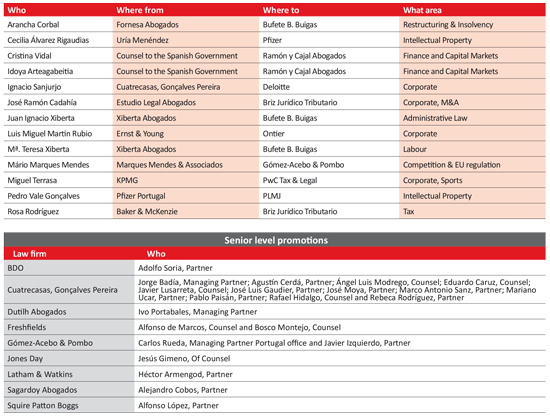Technological changes posing challenges for law firms – Fuster-Fabra Abogados
 The correct use of technology is vital if lawyers want to meet the demands of their clients effectively and efficiently
The correct use of technology is vital if lawyers want to meet the demands of their clients effectively and efficiently
Developments in the technology sector are posing a number of challenges for law firms, which must adapt their strategies in order to meet new market dynamics, according to Alberto J. Senante Sánchez, partner at Fuster-Fabra Abogados.
Furthermore, Senante Sánchez says the financial crisis meant small and medium-sized enterprises (SMEs) had to focus more on expanding internationally. “This forces law firms to acquire an international dimension to their advisory services in order to comply with what the current market demands.” To this end, Fuster-Fabra Abogados is a member of an international network called Harvest Legal International, which has a presence in Central and South America.
In addition, Senante Sánchez explains that due to the fact that SMEs are often led by individual entrepreneurs, lawyers are having to nurture relationships, and meet the expectations of, this type of client. According to Senante Sánchez, law firms have to “stand by them [SMEs], supporting their initiatives and offering legal advice from the beginning of their projects”. He adds that clients are increasingly looking for legal services and advice of a higher quality at less cost and that this can pose challenges for law firms looking to adapt to this new market dynamic.
Handle with care
The proper use of technology is a vital part of meeting these clients´ demands, according to Gerardo A. Zárate Salas, a partner in the labour department at Fuster-Fabra Abogados. He says that, with the legal market “evolving into a digital environment, law firms are introducing technological tools to reduce cost and increase efficiency as this is key to keeping a reasonable level of competitiveness”. He also warns that lawyers must not forget that the whole process of developing a digital strategy – as well as the management of various tools, such as database processing, analytical information in the cloud, and mobile apps – requires great care in order to avoid legal problems with clients.
What are clients demanding in the current market? According to Senante Sánchez, “clients today demand immediacy and law firms that go beyond normal levels of expectations in their legal advisory services”. He adds: “In the legal services world an immediate response and complete communication with the client is a priority.”
Constant communication
Senate Sánchez says that clients expect constant communication – as well as information on the progress and results of cases as they occur – in order to be up-to-date and assured that the defined strategy is being followed. This means that lawyers should not view themselves as just an external legal advisor but rather an integral part of the client’s team. “This reality must be perceived by the costumer,” according to Senante Sánchez. “The way to keep in contact with clients has changed but also the way to capture the attention of potential clients – the internet has become a very powerful way to communicate with them not only effectively, but also efficiently.”
Most law firms with a strong presence in Madrid are trying to adapt to this communications challenge, according to Senante Sánchez, who says that most of the changes that are “starting today will be a reality tomorrow”.
Rewarding creativity
According to Zárate, law firms must adapt in order to encourage creativity among their lawyers. It is with this objective that managing partners must seek people with this kind of talent, as well as allowing junior lawyers to stay in touch with market needs. Obviously, such talent and behaviour must be encouraged and rewarded both in economic terms and also with non-monetary rewards. Additionally, Zárate says that “managing partners in medium-sized law firms have to instil a commercially focused approach in the team as well as a proximity to, and knowledge of, clients and their case/situation as this is “key to securing new, potential clients.” Zárate concludes: “It is important to point out that managing partners must be aware that every business is changing in an unprecedented way.”












